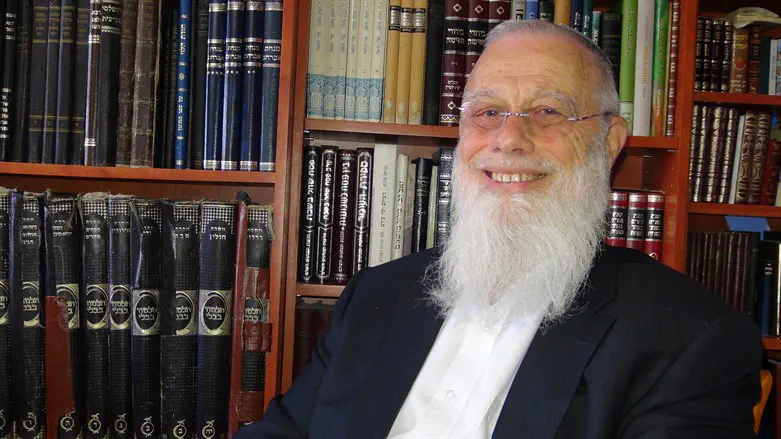
Rabbi Eitan Eisman, of of the leading rabbis of the Religious Zionist movement, expressed support for Religious Affairs Minister Matan Kahana's conversion reforms and called for a dialogue between Kahana and the Chief Rabbinate, which vehemently opposes the reforms.
The rabbi's remarks follow a scathing letter published by several senior Religious Zionist rabbis in which it was stated that they would not support a bill that does not receive the support of the Chief Rabbinate of Israel.
"The conversion law of Minister Matan Kahana is a good law. The conversions will be done according to Halacha," wrote Rabbi Eisman, adding, "The conversion law of Minister Matan Kahana is a good law in a number of respects. At last, there is a conversion law of a sort that we have not had before, it is written in it explicitly that the conversions are to be done according to Halacha, it is written that the entire outline will be done according to the [directives of the] Chief Rabbinate of Israel."
Rabbi Eisman called for talks between the Chief Rabbinate and Minister Kahana in order to reach an agreement on an outline. "Therefore, it seems to me that it is necessary to continue the talks between the minister and the Chief Rabbinate and to bring the parties closer, because everyone wants all the conversions to be to the satisfaction of the chief rabbinate of Israel," he wrote.
He said, "Everyone understands that at this great hour it is possible to uplift the people of Israel and face the great challenge of gathering the exiles where we deal with the inherent difficulties."
Last week, senior Religious Zionist rabbis affiliated with the 'Rabbanei Torat Haaretz Hatovah' organization signed a letter Wednesday opposing Religious Affairs Minister Matan Kahana's conversion reforms.
The letter was signed by Rabbi Chaim Druckman, Rabbi Dov Lior, Rabbi Yaakov Ariel, Rabbi Chaim Steiner, Rabbi Eitan Izman, Rabbi Shmuel Eliyahu, Rabbi Zephaniah Drori, Rabbi David Chai HaCohen, Rabbi Uri Cohen, Rabbi Elyakim Levanon, Rabbi Isser Klonsky, Rabbi Mordechai Sternberg, Rabbi Yaakov Shapira and Rabbi Yosef Artziel.
"The Chief Rabbinate of Israel is the body that gives the State of Israel its unique weight and Jewish character. It is the only body authorized to manage religious affairs in the country. In light of this - any change in religious matters can be made only by the Chief Rabbinate of Israel," the rabbis wrote.
"The conversion process has many implications for the existence and unity of the people of Israel, it must continue to be under the sole authority of the Chief Rabbinate. The kashrut system must also continue to be conducted under the authority and responsibility of the Chief Rabbinate," the added.
"Anything which is done on these and other religious issues without the full coordination of the Chief Rabbinate will not be recognized by us. We join the Chief Rabbinate's determination that any rabbi may give kashrut status only where he serves as rabbi."
Last week, after Rabbi Druckman signaled his support for the Chief Rabbinate Council's decision against Minister Kahana's conversion reforms, he made it clear that he supports the law in principle, but opposes a law that the Chief Rabbinate opposes.
Rabbi Druckman told Channel 12 News: "Matan Kahana's law is good in the current reality. I know the wording of the law and in principle support conversion by municipal rabbis, but I will not be able to support a law that the Chief Rabbinate opposes."
